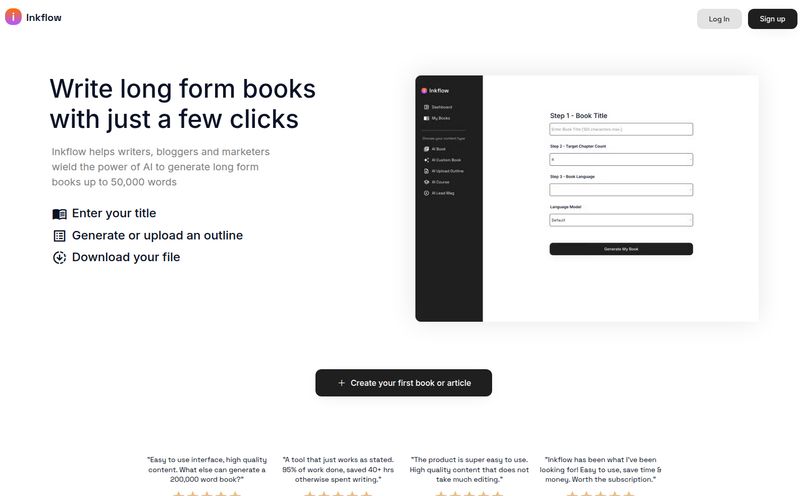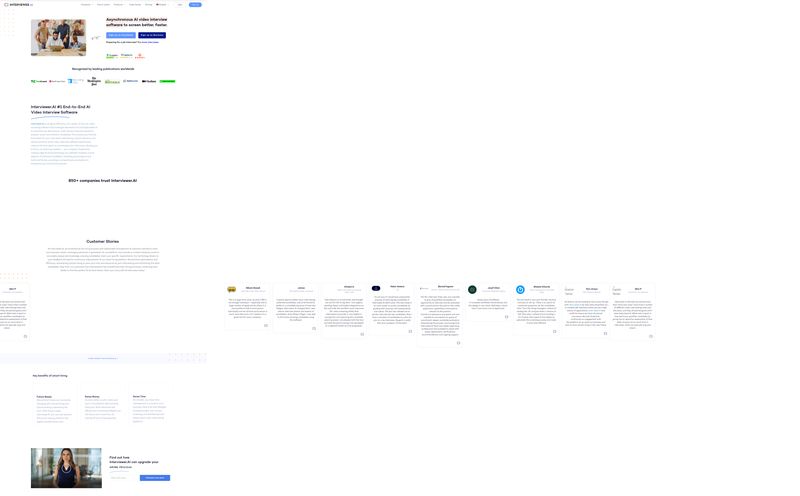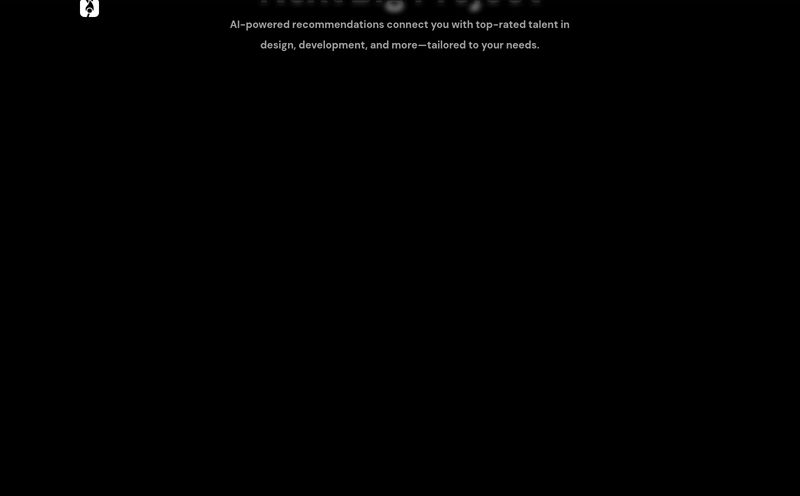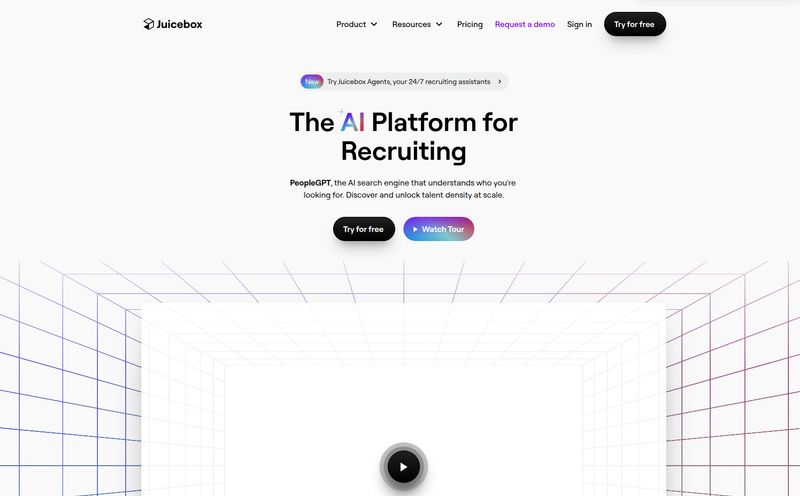I’ve been in the digital marketing and tech space for years, and if there's one process that seems universally, stubbornly resistant to improvement, it’s technical hiring. It's a grind. For everyone. You've got hiring managers drowning in resumes that all claim proficiency in the same laundry list of frameworks. You've got talented developers stuck in nightmarish whiteboard interviews, forced to solve abstract puzzles that have zero to do with their actual day-to-day job.
We've all been there, on one side of the table or the other. It feels like a high-stakes, low-information game. A sort of professional blind date where you're just hoping the person across from you is as good as their profile says. Companies spend a fortune, and countless hours, and still end up with bad hires. So when a platform comes along waving a big flag that says, “Hire fast. Train smart. Thank AI,” my inner cynic and my inner optimist both sit up and pay attention. That platform is CodeSignal.
So, What is CodeSignal, Really?
On the surface, CodeSignal is an AI-powered skills assessment platform. But that’s a bit like calling a smartphone a “portable telephone.” It kinda misses the point. Think of it less as a simple quiz tool and more like a flight simulator for tech and business roles. Instead of just asking a candidate if they can fly a plane (or code in Python), it puts them in a realistic, hands-on cockpit and says, show me.
It’s designed to tackle the entire talent lifecycle, from the very first screening of a new applicant to upskilling your veteran engineers on new technologies. And it does this by leaning heavily on AI-driven work simulations. We’re talking about a platform used by the likes of Meta, Netflix, and Google. So, yeah, it's got some serious street cred.
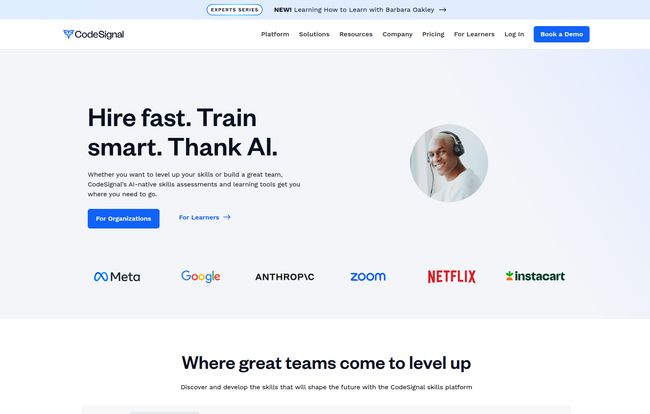
Visit CodeSignal
Why You Should Actually Care About AI in Hiring
AI is one of those words that gets sprinkled on everything these days, like truffle oil in 2015. But in the case of CodeSignal, it’s not just marketing fluff. The AI is the engine driving a fundamentally different approach to evaluating talent.
Meet Cosmo, Your AI Co-pilot
The centerpiece of their AI strategy is “Cosmo.” Billed as the “smartest AI guide in the universe,” Cosmo acts as an interviewer, a tutor, and a role-play partner. Imagine a candidate is working through a coding challenge and gets stuck. Instead of just failing, Cosmo can provide contextual hints and unblock them, just like a senior dev might do in a real pair-programming session. This gives you insight not just into what they know, but how they learn and problem-solve. That's a game-changer.
Beyond Resumes: The Power of Work Simulations
I’ve always felt that resumes are one of the worst predictors of job performance. They’re a highlight reel, not the full game tape. CodeSignal's philosophy is built around hands-on simulations. For a developer, this could be a task to debug a piece of code or build a small feature within a simulated environment. For a sales role, it might be an AI-powered role-play where they have to handle a difficult client objection. It measures what people can do, not just what they say they can do. Frankly, its about time.
A Quick Tour of the CodeSignal Platform
CodeSignal isn't just one single tool; it’s a whole suite built for different needs. For hiring managers and talent acquisition teams, you get AI-powered skills assessments that can be sent out automatically to filter candidates at the top of the funnel. You also get a platform for conducting live technical interviews that are more structured and repeatable than the ad-hoc whiteboard sessions of yore. But it’s not just for hiring. The platform also has a huge focus on internal mobility and growth. You can create personalized learning paths to upskill your current team, using the same simulation technology to identify skill gaps and provide AI-tutoring to close them. It's a really cohesive system.
It Plays Nice with Your Existing Tools
Here’s something that always gets a sigh of relief from anyone in operations. CodeSignal integrates with a whole host of the tools your HR and engineering teams are probably already using. We’re talking about big names like Workday, Greenhouse, iCIMS, Slack, and Zapier. This is not a small detail. It means you can plug CodeSignal into your existing workflows without causing a massive organizational headache. The data flows where it needs to, and you don’t have another siloed system to manage. It's a smart, practical move that shows they understand the realities of modern enterprise tech stacks.
But What’s the Catch? The Real-World Scoop
Okay, it all sounds pretty great. But as a professional skeptic, I know there's no magic bullet. Here’s where we need to get real.
Let's Talk About the Price Tag
You might have noticed there’s no “Pricing” page with neat little boxes and monthly fees on their website. CodeSignal operates on a “request a quote” basis. In my experience, this usually means two things: it’s not cheap, and the pricing is customized based on your company’s size and needs. This makes perfect sense for their target clients like Zoom and Anthropic, but it probably puts it out of reach for a five-person startup or a solo founder. You should view this as a strategic investment in your talent infrastructure, not a line item you can squeeze into a shoestring budget.
The Double-Edged Sword of AI
While the AI is powerful, it's also a system you need to trust. How fair are the assessments? Is there any hidden bias in the AI models? These are valid questions for any AI-driven hiring tool. CodeSignal puts a lot of emphasis on the objectivity of its simulations, but it still requires a level of human oversight and validation. You can’t just “set it and forget it.” You’re handing over a critical part of your company-building process to an algorithm; you need to be sure you understand how it works and are comfortable with the results. You're the pilot, the AI is the copilot—you still have to fly the plane.
So, Is CodeSignal the Future of Hiring?
Here’s my take. For medium-to-large organizations that hire a significant number of technical or business professionals, CodeSignal seems like a seriously compelling proposition. It addresses the most painful, inefficient parts of the hiring process with a smart, modern solution. It could save an incredible amount of time for your engineering managers and recruiters, freeing them up from sifting through unqualified leads to focus on the best candidates.
It’s an investment, for sure. But when you consider the astronomical cost of a bad hire—in lost productivity, team morale, and the cost of re-hiring—the ROI could be massive. It represents a shift from pedigree to performance, and I am 100% here for that. The days of hiring someone just because they have a fancy degree or worked at a FAANG company are numbered. The future is about proving you have the skills, and CodeSignal is one of the most interesting platforms I've seen that's built to do just that.
Frequently Asked Questions about CodeSignal
What is CodeSignal primarily used for?
CodeSignal is a comprehensive platform used for both hiring new talent and developing existing employees. For hiring, it offers AI-powered skills assessments and live interview tools to identify the best candidates. For development, it provides AI tutoring and personalized learning paths to upskill and reskill team members.
Is CodeSignal only for hiring software developers?
No, while it has deep roots in tech hiring, CodeSignal has expanded to cover a range of business roles as well. They offer simulations and assessments for roles in sales, marketing, and other departments, using AI role-play and other techniques to evaluate business-specific skills.
How does the Cosmo AI feature work?
Cosmo is an integrated AI assistant. During an assessment, it can act as a guide, providing hints to candidates who are stuck, which helps measure their learning ability. It also functions as an AI interviewer and a tutor within the platform's learning modules, providing a more interactive and personalized experience.
How much does CodeSignal cost?
CodeSignal does not list public pricing. They use a quote-based model where the price is tailored to the specific needs of your organization, such as the number of employees, the roles you're hiring for, and the specific products you need. You'll need to contact their sales team for a custom quote.
Can I trust an AI to make hiring decisions?
CodeSignal is designed as a tool to inform human decisions, not replace them. The platform provides objective data on a candidate's skills through simulations, which is often more reliable than a resume or traditional interview. However, the final hiring decision always rests with the hiring manager and team.
Conclusion
Navigating the world of tech recruitment is tougher than ever, and clinging to old methods is a recipe for falling behind. CodeSignal presents a bold, tech-forward vision for how we can do better. By shifting the focus from resumes to real, demonstrable skills, it has the potential to make hiring more effective, more efficient, and ultimately, more fair. It's not a silver bullet, and it requires a real investment, but for companies serious about building and retaining top-tier talent, it’s a platform that demands a closer look.
